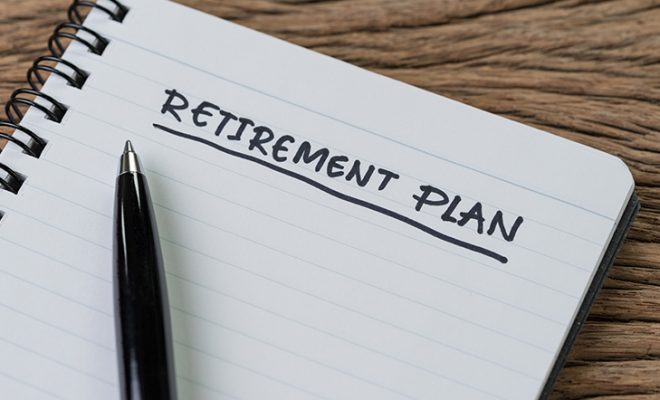How Pre-Retirement Planning Can Set You Up for Long-Term Success

Retirement is different from your other financial milestones. For instance, if you are saving for a house, you are essentially saving for a one-time purchase. Retirement, on the other hand, is a full chapter that can last for decades. Hence, it needs a solid plan. Think about it, the average retirement can stretch 25 to 30 years, sometimes more if you retire early. During this chapter, you will need money for essentials like food, healthcare, and housing and for the things that make life fun, like travel, hobbies, and social activities. Unless you plan to work during retirement, which kind of defeats the purpose of retiring, your savings will be your primary support system.
That is why having a pre-retirement planning program is essential so you can live comfortably in your golden years. If you are wondering why this matters or where to begin, this article will break down how thoughtful planning before retirement can lead to lasting success later.
How does having a pre-retirement plan set you up for living comfortably in retirement?
1. Pre-retirement planning provides financial security in your golden years
Financial security matters at every stage of life. But once you hit retirement, it becomes non-negotiable. Unlike your working years, when you could take up a side gig or push through a few late nights to make extra money, retirement does not offer the same flexibility. That is why pre-retirement planning is so important. It is your safety net for the future.
Consider an example:
You are young and maybe overspent one month. You could be on a vacation that went over budget or have had an emergency repair that wiped out your savings for the month. Such a situation can be stressful, sure. But you probably still have options. You could work overtime, take on a freelance project, or even pick up a second job for a few months. You can borrow some money and pay it back gradually as your income increases. You have time, energy, and a steady paycheck on your side in your younger years. Now, imagine that same financial hiccup during retirement. There is no employer to ask for more hours, no bonus around the corner, and your physical energy might not be what it used to be. If your savings run dry, your options become limited.
Pre-retirement planning helps you prepare for the unexpected before it has a chance to throw you off track. It enables you to build a solid financial foundation ahead of time so you can give yourself peace of mind for the years when you will be living without a regular paycheck. This kind of planning helps you understand your future lifestyle and make sure you can sustain it. It allows you to travel, maintain your current standard of living, and, most importantly, live with peace of mind and not stress. Everything you foresee doing in retirement, whether it is traveling or sunbathing in your front yard, requires money, and the sooner you start preparing for it, the better.
With pre-retirement planning, you can save, invest and grow your money through retirement accounts like 401(k)s and Individual Retirement Accounts (IRAs) or other retirement investments. With sufficient savings in your pocket, you get options. You have the financial freedom to make choices and are not forced to compromise on the quality of life you want for yourself. It allows you to stay in control, as you age.
2. Pre-retirement planning helps you save for your future healthcare needs
Healthcare is not just expensive. It is really expensive!
And in retirement, when your regular income stops but your medical needs usually increase, it can quickly become one of your biggest financial burdens. That is why it is so important to include healthcare in your pre-retirement planning checklist. And if you have not already started, here’s a wake-up call:
According to the National Health Expenditure Account (NHEA), healthcare spending in the U.S. rose by 7.5% in 2023, reaching $4.9 trillion, which is about $14,570 per person. Healthcare alone accounted for 17.6% of the U.S. Gross Domestic Product (GDP). Now, it is believed that people in wealthier countries may spend more on healthcare than people living in other countries. Even then, the U.S. spends a lot per person on healthcare compared to many other high-income nations. Imagine facing these kinds of costs in your 70s or 80s, without a job and without a plan. Scary, right? But here is the good news – you have time to prepare if you start planning early. Pre-retirement planning allows you to save strategically and build buffers, so you do not find yourself in a blind spot later.
So, what can you do?
Start with a Health Savings Account (HSA) in your working years. An HSA is a dedicated savings tool for future healthcare planning. It is triple tax-advantaged, which basically implies that your contributions are tax-deductible, the money in the account grows tax-free, and all qualified withdrawals are tax-free in retirement. You also need to take time to understand your insurance coverage. If your employer plan will not continue after retirement, consider what Medicare covers and what it does not. You may be surprised to learn that Medicare does not cover everything. Dental, vision, and long-term care are often left out of the scope of Medicare. So, depending on your situation, you might want to look into private insurance before you retire or a supplemental Medicare plan. Do not forget your loved ones, either. If your spouse or dependents rely on your insurance, make sure they are covered in your retirement plan. Otherwise, those medical bills could end up on your shoulders. Another smart move is to plan for long-term care, such as assisted living, nursing homes, or in-home care. These services can cost thousands of dollars a month. Long-term care insurance can help cover some of those costs, but the best time to buy it is before you actually need it, ideally in your 50s or early 60s, before you enter your golden years.
Lastly, do not leave all this planning to the last minute, as waiting too long could limit your options. Set aside time now to look at your future healthcare expenses and create a healthcare plan that gives you peace of mind.
3. Pre-retirement planning helps you eliminate debt before you retire
If there is one rule you should aim to follow before retiring, it is this – do not carry debt into retirement!
Seriously, debt and retirement just do not mix well. Your golden years are meant for relaxing, spending time with loved ones, and enjoying the freedom you have worked for your whole life, not stressing over monthly loan or credit card payments.
When you are younger, it is a different story. You have a regular income. You might even earn more every year if you are doing well in your career. If you take on debt, say a home loan, a car loan, or even credit card debt, you at least have the earning power to manage it. Plus, you have time on your side. You can refinance, restructure, or even pick up extra work to pay it off. But retirement flips that equation. Once you stop working, your income becomes fixed and finite. It might come from a pension, Social Security benefits, or your retirement investments. This income is meant to cover essentials, like food, utilities, healthcare, and hopefully, some luxuries, too. But if you are also paying a mortgage or making minimum repayments on a credit card, your money will not stretch nearly as far.
Pre-retirement planning gives you a chance to eliminate your debt while you can do something about it. It allows you to create a potent strategy. In 2025, an estimated 452,000 people aged 62 and older have student loans in default. Yes, student loans!
Even more staggering, people aged 60 and older now hold around $125 billion in student loan debt, according to the National Consumer Law Center. Paying off debt in retirement leaves less room to cover your healthcare, hobbies, travel, or emergencies. Pre-retirement planning can help you clean up the financial messes of the past. It gives you a chance to enter retirement with a clean slate, with no monthly loan payments eating into your savings and no sleepless nights worrying about bills. Just peace of mind.
So, if you have not already, start listing your debts, such as home loans, credit cards, and anything else, and make a plan to eliminate them. Speak to a financial advisor if you need to and consider increasing your monthly payments now or cutting back on some spending in the short term for a much more comfortable long-term retirement.
4. Pre-retirement planning prepares you for the unplanned expenses, including emergencies
Pre-retirement planning is not just about budgeting for the knowns. It is about expecting the unknowns and being ready for them financially, emotionally, and practically.
You might be relaxing, enjoying your retirement, and then suddenly, the roof caves in. Literally. Or the water heater breaks down. Or your car decides to stop working right before a long-awaited road trip. These things do not announce their arrival, and if you are not financially prepared, they can create serious chaos. If you face one of these situations with no emergency fund in place, you will likely have to use your long-term retirement savings and withdraw more than you planned. You would also possibly be paying higher taxes on those withdrawals and shortening the lifespan of your retirement fund. This is far from ideal, especially when your savings are supposed to last 20 or 30 years or even longer.
So, what do you do to avoid such a situation? Pre-retirement planning. Undertaking pre-retirement planning not only prepares you for your regular monthly expenses but also for life’s little and big surprises. From emergency home repairs to unexpected medical bills, planning can help you cover all these expenses.
But let’s not limit the conversation to emergencies. Life is not just about leaks and fixes. It is also about enjoying yourself. What if your friends call you up and say, “Hey, we’re planning a spontaneous trip to the coast. Are you in?” Wouldn’t it be nice to say yes without stressing about your budget? Pre-retirement planning gives you the room to say yes. It lets you set aside a portion of your savings for unplanned, non-emergency expenses, too, like travel, hobbies, or helping out a family member. These are not emergencies, but they matter just as much for your happiness and peace of mind.
5. Pre-retirement planning helps you combat longevity risk and ensures you do not run out of money
The longer you live, the longer your money needs to last. This is what financial planners call longevity risk. In simple terms, it refers to the very real possibility that you might outlive your retirement savings.
Let’s look at a bit of history. In 1900, the average life expectancy in the U.S. was shockingly low at around 46.3 years for men and 48.3 for women. Back then, most people did not even think about retirement because, chances were, they would not live long enough to enjoy one. Fast forward to 2023, and things have changed dramatically. The average life expectancy for American men has risen to 75.8 years, and for women, it is 81.1 years. Women are expected to outlive men by over five years. And these are just averages. If you take good care of your health, have good genes, and benefit from future advancements in medical technology, which are happening fast, there is a real possibility you could live well into your 90s or beyond.
This is great news unless you have not planned for it financially. Here’s where a pre-retirement planning program comes into play. It not only helps you save for the day you stop working but also ensures that you do not run out of money, no matter how long you live.
Here’s what you can do to protect yourself from outliving your savings:
- Start by building a retirement plan that factors in your expected lifestyle and the possibility of a long life.
- You can include investments that are designed to grow over time, such as stocks, mutual funds, or real estate.
Pre-retirement planning for wealthy individuals is just as crucial. High-net-worth retirees may have larger portfolios, but without proper planning, even large sums can be drained faster than expected. Therefore, speak to a financial advisor today to find out what you can do to protect your estate from depleting too soon, even if it seems large enough right now.
The bottom line?
It is never too early to start planning for your golden years, and the sooner you begin, the better off you will be. Pre-retirement planning helps you get serious and put actual numbers, goals, and strategies in place. The beauty of planning early is that you have time on your side. You have the chance to dig into the details instead of just brushing the surface. You will think about things you might have overlooked, like healthcare costs, long-term care, etc.
Yes, it might feel like a lot. But that is where resources can help. You can always consult a financial advisor to guide you. You may also use the free advisor match tool to match with suitable professionals who understand your needs and can create a retirement plan that works for you. If you would rather take the DIY route for now, no problem. Use the insights and checklist covered here to get started.
For further information on creating a suitable retirement plan for your unique financial requirements, visit Dash Investments or email me directly at dash@dashinvestments.com.
About Dash Investments
Dash Investments is privately owned by Jonathan Dash and is an independent investment advisory firm, managing private client accounts for individuals and families across America. As a Registered Investment Advisor (RIA) firm with the SEC, they are fiduciaries who put clients’ interests ahead of everything else.
Dash Investments offers a full range of investment advisory and financial services, which are tailored to each client’s unique needs providing institutional-caliber money management services that are based upon a solid, proven research approach. Additionally, each client receives comprehensive financial planning to ensure they are moving toward their financial goals.
CEO & Chief Investment Officer Jonathan Dash has been covered in major business publications such as Barron’s, The Wall Street Journal, and The New York Times as a leader in the investment industry with a track record of creating value for his firm’s clients.










